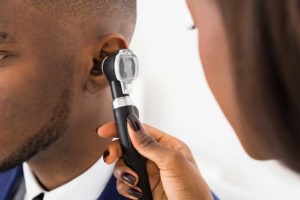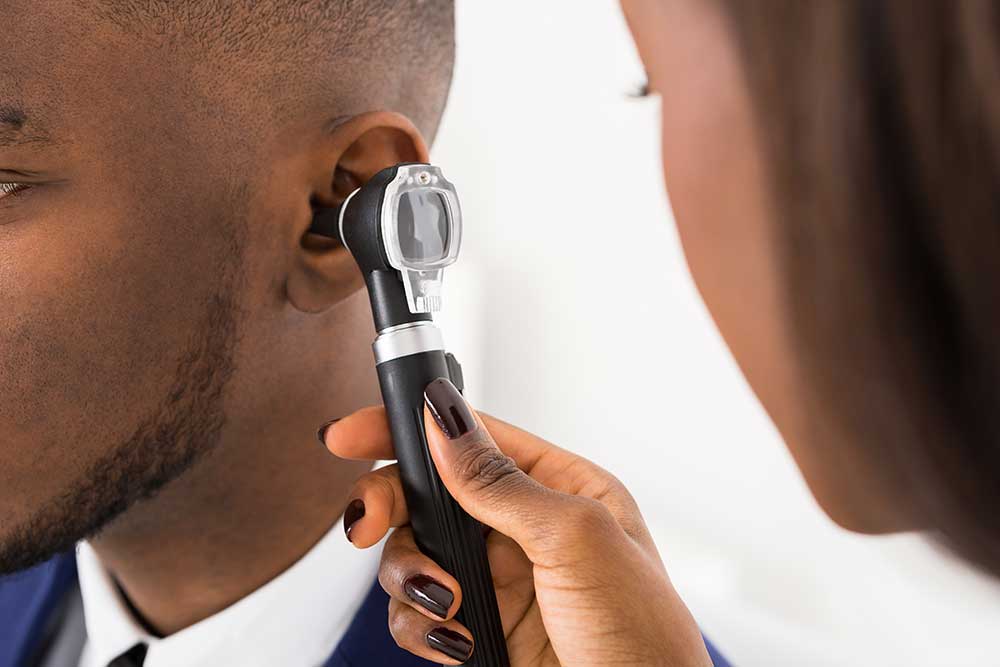Disclaimer: The information on our website is provided for general information purposes only. We make no representations or warranties of any kind, express or implied, about the completeness, accuracy, reliability, suitability or availability with respect to the website or the information contained on our website for any purpose. Any reliance on such information is therefore strictly at your own risk and we are not liable for any damages or losses arising out of or resulting from your reliance on any information contained on our website.
An audiologist is a health care professional who specializes in hearing problems and subsequent balancing problems in kids and adults. Audiology is a branch of science that deals with hearing and all related problems, conditions, or disorders. Also, they are specifically trained to help kids when hearing problems are often first diagnosed.
Watch a video to learn what an audiologist does:
How to Become an Audiologist

To become an audiologist, you should first obtain a bachelor’s degree in a science-related field, such as biology or communication sciences and disorders. After completing your bachelor’s degree, you can enroll in a master’s program in audiology. While a master’s degree is valuable, it’s essential to note that, in many countries, a doctoral degree in audiology, typically an Au.D. (Doctor of Audiology), is the standard requirement for licensure and practice as a fully qualified audiologist.
Doctoral programs in audiology provide in-depth training in the evaluation and treatment of hearing and balance disorders. They include both classroom coursework and clinical experiences. These programs prepare you to work with individuals of all ages who have hearing-related issues, from infants to the elderly. Obtaining a doctorate in audiology is crucial to meet the licensure requirements and offer comprehensive audiological services to patients.
Job Description of an Audiologist
Audiologists diagnose hearing problems in kids and adults and take measures to treat the problem. They can treat patients with medical devices (such as hearing aids), prescribe medications and therapy, recommend lifestyle changes, and suggest training programs to improve or cure hearing and/or balancing problems.
Typically, audiologists prescribe and fit a person for hearing aids, provide assistance in cochlear implant programs, carry out surgeries (though not every audiologist is experienced to conduct surgeries), design and facilitate the implementation of hearing conservation programs, and offer rehabilitation. They may also be experienced in offering auditory training, speech reading, and listening skills improvement. An audiologist can have his or her own practice and running a private practice is common. They also work at other health centers or hospitals.
Free Teacher and Student Resources
American Speech-Language Hearing Association (ASHA)
The American Speech-Language Hearing Association (ASHA) website has an informative article to help you plan your education. Visit their Planning Your Education in Communication Sciences and Disorders webpage to check it out.
Audiologist Career Video Transcript
Audiologists test patients’ hearing and examine patients who have balance or other ear problems. Most audiologists fit patients with hearing aids and monitor their hearing over time. Because hearing loss can influence a person’s well-being, audiologists evaluate psychological health and determine a patient’s coping skills before they recommend treatment. They treat balance disorders with special exercises, clear ear wax from ear canals, and may fit patients with cochlear implants for some types of deafness. They may also do research or educate people on how to prevent, or cope with, hearing loss.
Compassion is essential in virtually all healthcare careers, but audiologists in particular need the patience and perseverance to find solutions for patients who may be frustrated and anxious due to hearing or balance problems. They need strong communication skills to help patients and their families understand diagnoses or treatment options. Most audiologists work in hospitals, doctors’ offices, and clinics. Some work for school districts or in pharmacies. Most audiologists work full-time, including some evenings and weekends, although a significant number are employed part-time. Audiologists need a doctoral degree and must be licensed to practice in a particular state. Requirements vary by state. Doctoral degrees in audiology typically take 4 years to complete; candidates may apply to enter programs after earning a bachelor’s degree in any field.
Article Citations
Bureau of Labor Statistics, U.S. Department of Labor, Occupational Outlook Handbook, Audiologists.
National Center for O*NET Development. 29-1181.00. O*NET OnLine.
The career video is in the public domain from the U. S. Department of Labor, Employment and Training Administration.

